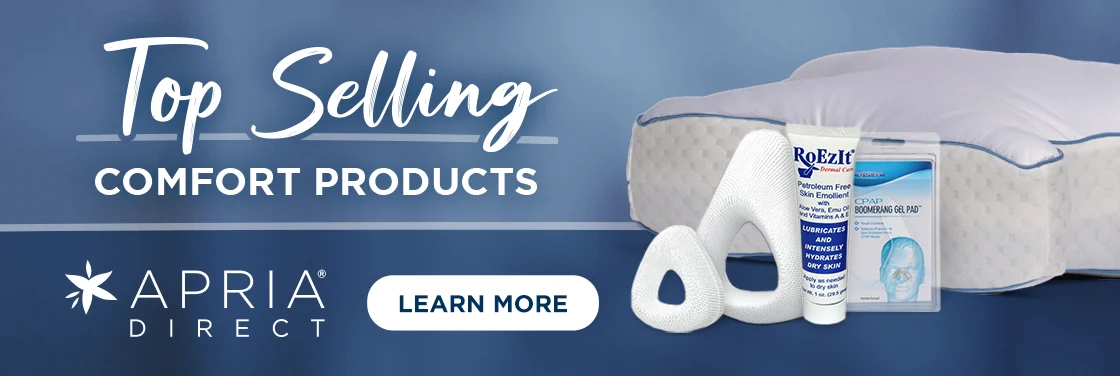ASK APRIA
Today's Clinician

Ryan Jones
Ryan lives in West Tennessee and has been a Registered Respiratory Therapist for 19 years. She spent the first six years of her career working in the hospital before she transferred to the home care world, where she now serves Apria's patients in Southeastern United States. In her spare time, you can find Ryan at the ballpark watching her daughter play, cheering on the St. Louis Cardinals, or camping with her family and their yellow lab, Yadi.
CPAP
Q. Why do I get a headache when I use my CPAP?
A. This could be caused by several different things, but please make sure that you discuss any symptoms with your physician.
1. Your CPAP pressure may need to be adjusted. The pressure could be too high or too low.
2. Your humidifier on your CPAP may need to be adjusted. If you are waking up with a dry mouth and/or nose, you may need to increase the moisture setting on your humidifier. This dryness increases the risk of sinus congestion and nasal infections, which may lead to headaches.
3. Make sure that you are keeping your CPAP equipment clean. This helps to prevent the buildup of bacteria, mold, dust and germs, which may cause sinus infections, a leading cause of headaches.
For more information: Prevent Headaches from CPAP Therapy.
Q. Do I need to have the MyAir app on my phone in order for my CPAP device to send any data? Why is it important for me to send data at all?
A. The MyAir app is not required in order for your CPAP device to send data back to Apria. In most cases, your CPAP is equipped with an internal wireless modem that will upload your data daily, about 2 hours after your device is turned off. The data from your CPAP device is used to provide compliance information to your insurance company (if required by your particular insurance plan). We can also provide your physician with your CPAP data, should the need arise.
If you decide to download the MyAir app on your phone, it will help keep you engaged and informed with your own therapy. It will allow you to track and view your nightly data, such as hours of usage, mask seal and if you are having any respiratory events while sleeping.
Q. I use nasal pillows but am waking up with really dry mouth and throat, why would my mouth be so dry?
A. The most common cause for dry mouth while using a nasal mask or nasal pillow is your mouth coming open while you are asleep. This allows the air to enter your nose but exit abruptly out of your mouth. You may need to try a chinstrap to help keep your mouth closed or possibly change to a full face mask. A full face mask will cover your nose and mouth while you sleep, allowing you to breathe through your nose or your mouth.
Q. When should I get a new machine? I’ve had mine for nearly 8 years but it seems to be working fine.
A. Most, but not all, insurance plans will approve a new CPAP device after 5 years. Even if you feel like your machine is working just fine, any equipment will experience normal wear and tear from regular use and eventually not perform optimally. It's a good idea to take advantage of a new machine when it's covered by your insurance.
Do you have a question for our Respiratory Therapists to be answered in a future email?
We want to hear from you!


